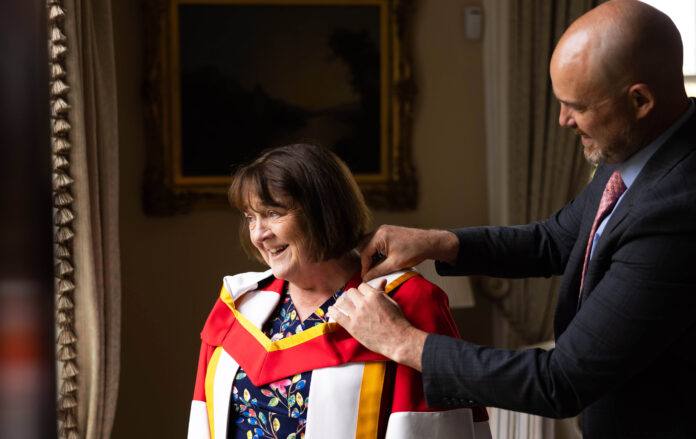
TWO trailblazing women have been given the University of Limerick’s highest honour this week.
Maeve Lewis and Rose Cleary were conferred with honorary doctorates from UL this week, as part of the university’s graduate conferring ceremonies.
Dr Lewis, a psychotherapist and Chief Executive of One in Four, the Irish charity supporting survivors of childhood sexual abuse and archaeologist Rose Cleary were honoured for their outstanding contribution to society.
Dr Lewis was conferred as an honorary Doctor of Letters for her work for and with victims of sexual abuse and trauma.
As a human rights advocate, the Nenagh woman has worked tirelessly to transform societal attitudes and has implemented programmes of support for victims and survivors across Europe and Africa.
Dr Cleary was bestowed as an Honorary Doctor of Science for her work unearthing, preserving and promoting the rich history and archaeology of County Limerick through her work at Lough Gur, which she has dedicated 40 years to.
With Lough Gur attracting over 110,000 visitors a year, Rose, from Burncourt in County Tipperary, has been hailed for her contribution in putting Limerick on the map as a county of exceptional archaeological, historical, and cultural importance.
Dr Lewis, an alumnus of UL who graduated from University of Limerick (then NIHE) in 1979, said: “It is an incredible honour to receive this honorary doctorate – part of me can’t believe that the University is giving me such an honour.”
UL President Professer Kerstin Mey said: “We are delighted to bestow the University’s highest award to two honorary doctorate recipients – an occasion that always greatly adds to the breadth and calibre of those we are privileged to count among our community.”
“We do so to recognise the extraordinary contributions our honorary doctorates have made in their respective fields,” Professor Mey concluded.









